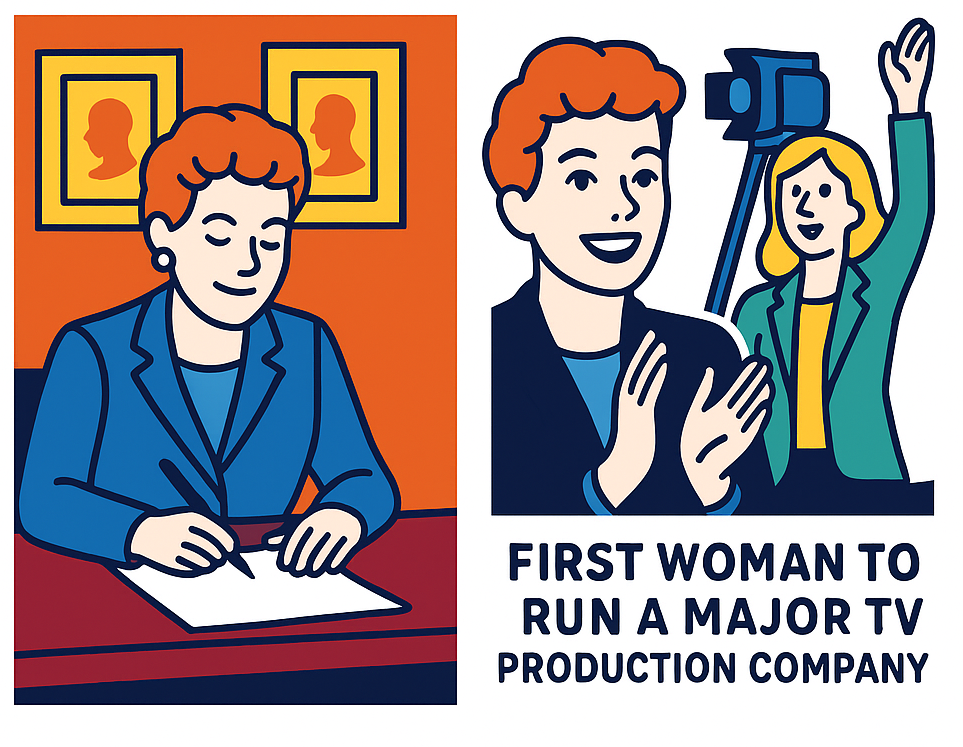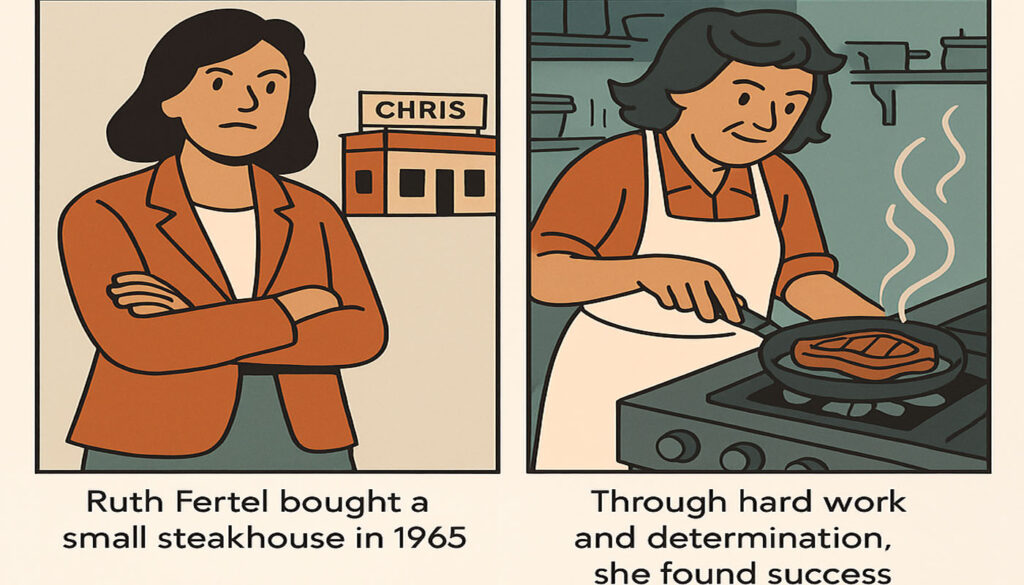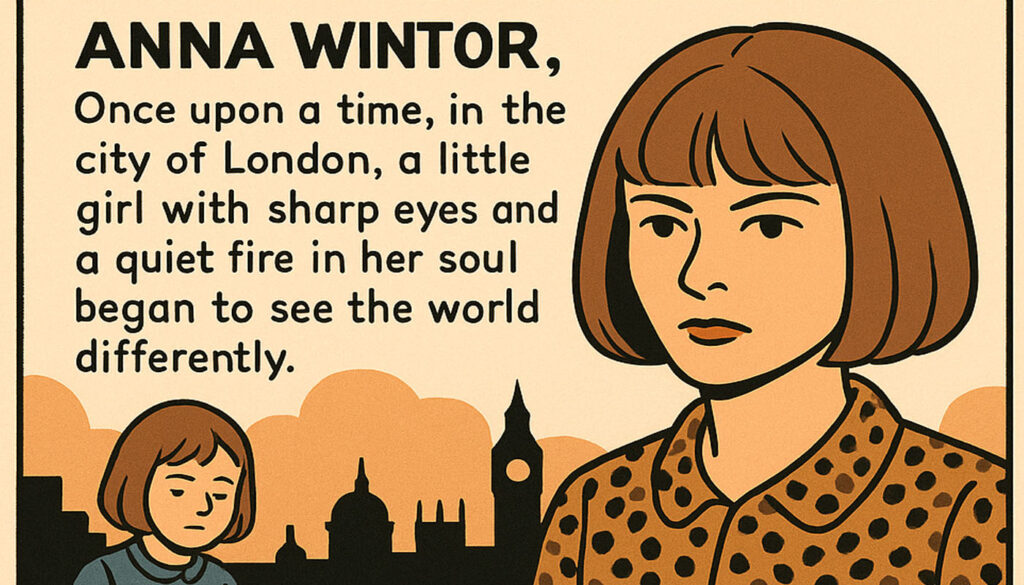Lucille Ball was not just funny. She was fierce. She was smart. She was determined. She was the kind of woman who didn’t just open doors—she built the hallway and painted it red.
Her journey began in a small town in New York. Born in 1911 in Jamestown, little Lucy grew up with big dreams. Life wasn’t easy. Her father passed away when she was only three. Her mother worked hard, and Lucille learned early how to be strong, independent, and never afraid of hard work.
As a young girl, Lucille loved performing. She would sing, dance, and make faces in the mirror. She had a spark—a bright, shining spark. But when she told people she wanted to be an actress, they laughed. “You?” they said. “You’re too shy. Too plain. Too clumsy.”
But Lucille didn’t listen.
At age fifteen, she convinced her mother to send her to acting school in New York City. It was a big move. A scary one. She packed her suitcase and jumped into a world of lights, cameras, and ambition. But success didn’t come fast. Not at all.
Lucille was fired from acting school. Her teachers said she didn’t have “it.” She went back home, embarrassed and unsure. But something inside her refused to quit. She took small modeling jobs. She dyed her hair blonde. She kept showing up, day after day. And slowly, little by little, she got roles.
In the 1930s and 1940s, Lucille appeared in dozens of movies. She was often the funny sidekick, the glamorous extra, or the quirky girl in the background. She was known as the “Queen of the B’s,” meaning she starred in many B-movies—low-budget films that never made headlines.
But Lucille wanted more. She wanted something different. She wanted to create.
In 1940, she met and married Desi Arnaz, a Cuban-American bandleader with charm, energy, and big dreams of his own. Their relationship was passionate and sometimes stormy, but they truly believed in each other. And in 1951, they took a huge leap.
Lucille and Desi created a new kind of television show called I Love Lucy. At the time, most people didn’t believe it would work. A real-life couple starring together? A Cuban man with a thick accent as a TV husband? A woman doing outrageous comedy? It all seemed too risky.

But Lucille wasn’t afraid to take risks.
From the very first episode, I Love Lucy was a sensation. People across America fell in love with Lucy Ricardo, the zany, lovable housewife who always found herself in crazy situations. Whether stomping grapes in Italy, working on an assembly line of chocolates, or disguising herself to sneak into Desi’s nightclub, Lucille’s timing, expressions, and physical comedy were pure magic.
Behind the scenes, Lucille wasn’t just acting. She was building something bigger. She and Desi co-founded Desilu Productions, their own TV production company. It was a bold move, especially for a woman at that time.
In the 1950s, women weren’t running businesses—especially not in Hollywood. Studios were controlled by powerful men in suits. But Lucille broke that mold. With Desilu, she didn’t just produce I Love Lucy. She helped create a system that would change television forever.
They were the first to use a multi-camera setup in front of a live studio audience. They recorded the show on film so it could be rerun—something that was unheard of at the time. Thanks to Lucille’s insistence on owning the rights, I Love Lucy became one of the first shows to make real money from reruns.
In 1960, Lucille and Desi divorced. It was heartbreaking, but Lucille didn’t let her story end there. Instead, she stepped into a new chapter—with more courage than ever before.
Desi left the company, and Lucille bought out his share. That made her the first woman in American history to own and run a major television production company.
Let that sink in.
In an industry dominated by men, in a world that rarely gave women real power, Lucille Ball took the helm. She sat in the big chair. She made the decisions. She signed the checks.
Under her leadership, Desilu Productions didn’t just survive—it soared.
She greenlit shows that would become legends: Star Trek, Mission: Impossible, The Untouchables, and many more. These weren’t safe, easy choices. They were bold, new ideas. But Lucille believed in talent. She believed in taking risks. And she believed in giving people a chance.
One day, a young producer came to her with an idea for a science fiction show set in space. Most executives would have laughed. Lucille said, “Let’s do it.” And just like that, Star Trek was born.
She didn’t understand every technical detail, but she knew good storytelling when she saw it. She had the instinct of a true leader. She supported the creators, even when others said no.
Lucille proved that women could be bosses. Not just in name—but in action. She knew the value of her vision and the strength of her voice.
People around her respected her deeply—not just for being a star—but for being a smart, fair, and fearless businesswoman. She worked hard, stayed humble, and kept fighting for creative freedom. She built an empire not just with her talent, but with her mind.
Even after selling Desilu in 1967, Lucille continued acting, mentoring, and inspiring. She never stopped moving forward. In later years, she starred in more TV shows and stage productions, always delivering laughter with a sparkle in her eye.
She received dozens of awards and honors, including the Presidential Medal of Freedom. But Lucille didn’t do it for the fame. She did it for the joy. For the passion. For the power of creating something meaningful.
Lucille Ball wasn’t just a comedian. She wasn’t just an actress. She was a pioneer, a business leader, a rule-breaker, and a trailblazer. She opened doors for women in entertainment, in business, and in leadership.
She once said, “I’m not funny. What I am is brave.”
And that bravery changed everything.
She showed the world that women can be hilarious and powerful, kind and strong, glamorous and wise. She built something bigger than a company. She built a legacy.
Lucille passed away in 1989, but her spirit still lives on. Every time someone laughs at a sitcom, or follows their dream in the face of doubt, or dares to create something new—Lucille’s light shines through.
She taught us that success doesn’t come from waiting for permission. It comes from showing up, standing tall, and saying, “I believe in this. I believe in me.”
And when the world said no, Lucille Ball smiled, rolled up her sleeves, and said, “Watch me.”

















